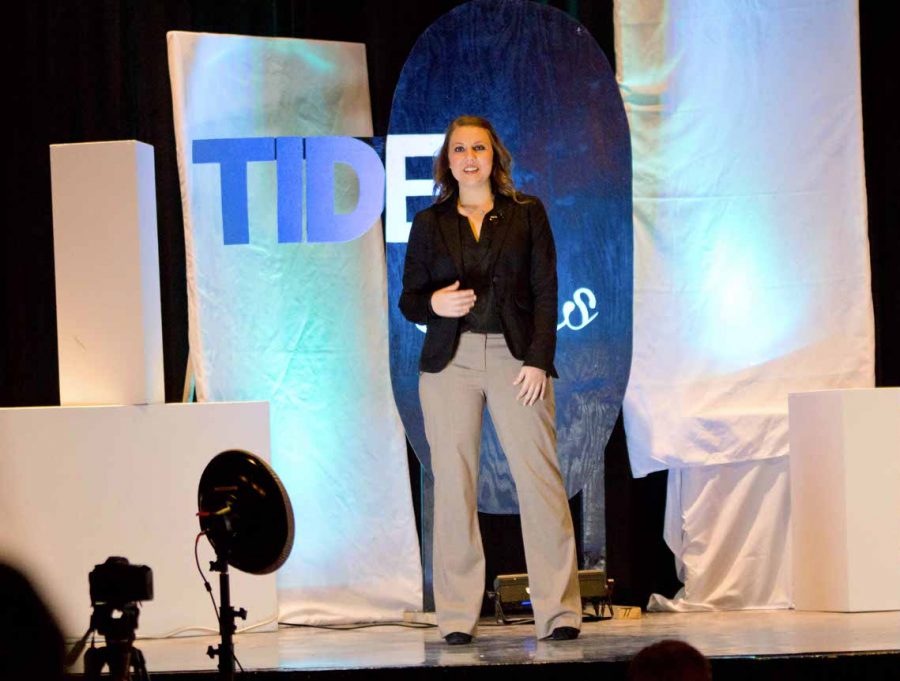Five University of Alabama students shared their experiences and stories with a large audience Monday night at the final Tide Talks event of the semester.
Tide Talks V brought together five speakers for four talks on a range of topics. Unlike previous talks, this event included free snacks and live music for transitions between the talks, featuring the Afro-American Gospel Choir, Lee Johnson III and slam poet Willie Gillette.
The first speaker was Samuel Creden, a junior majoring in biology and psychology, who spoke about the need for relationship-based communication skills to achieve productive results. He used Maslow’s Hierarchy of Needs to explain why people have difficulty separating an attack on an idea from an attack on a person and offered suggestions for having better communication with those who hold opposing opinions.
“Let’s untangle ourselves from our ideas and realize they are separate entities,” Creden said. “Let’s find common ground with people who disagree with us.”
After Creden, Claudia Calhoun, a graduate student studying marketing, took the stage. Calhoun’s speech urged students to actively create change in their community, citing her own experiences volunteering with West End residents in rebuilding a home with Habitat for Humanity. She encouraged the audience to exercise all the power within their spheres of influence to make the world as positive a place as possible, even if individuals can only improve the life of one person.
“We often get so caught up in our busy schedules that we fail to realize we can make even a small change in someone else’s life,” Calhoun said.
The third speaker of the event was Julia Stevens, a graduate student studying biological sciences, who spoke on the effects of the accidental release and overpopulation of the Pacific lionfish in the Atlantic Ocean and Gulf of Mexico, pointing to its over-hunting habits and population-wide mutations.
“Lionfish in the Caribbean are nearly twice the size they are in the Pacific. In this picture, you can see fatty deposits around the liver of a lionfish we dissected,” Stevens said. “Welcome to America, lionfish.”
For the first time in Tide Talks history, two students collaborated on a speech. Using their recent expose on sorority segregation as a platform for their speech, The Crimson White reporters Matt Ford and Abbey Crain, both seniors majoring in journalism, took turns sharing their hopes and fears while publishing the story. Afterward, they stressed the idea that injustices can only be addressed if people are made aware of them first, pointing out that the media are not the only way to make such change.
“One thing stood out to us in the reporting process: Position does not necessarily equal truth,” Crain said. “Sometimes you have to question society’s norms, and some people won’t like that.”
Tide Talks founder David Phelps said he is excited for what next semester holds.
“It is energizing to be at Tide Talks V. It was one year ago this week that this idea was conceived, now we got it all together with great speakers, great music and great ideas,” Phelps said.
Anyone interested in applying to give a Tide Talk or joining the executive board to plan next year’s events should visit tidetalks.weebly.com.
“We always like trying something new and different,” Phelps said.









